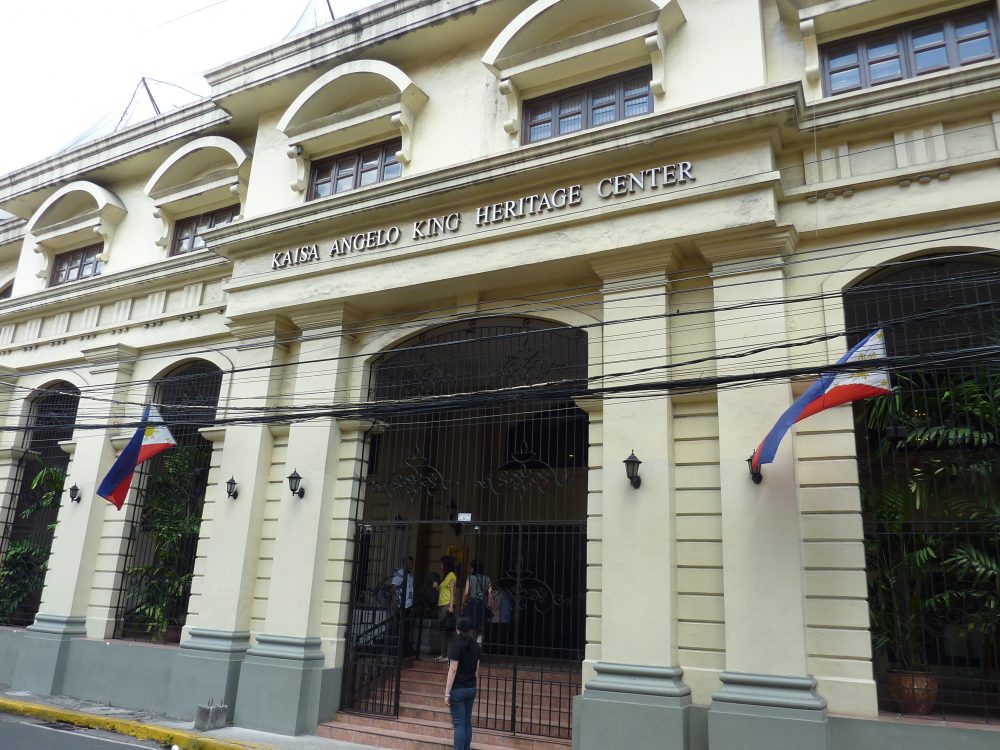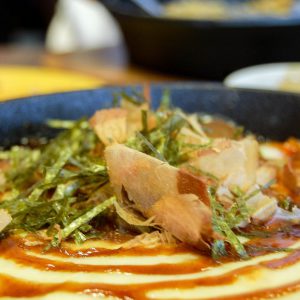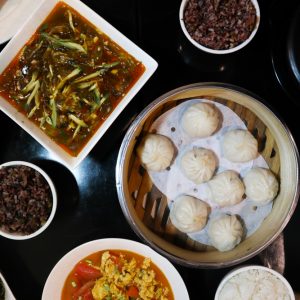Strategically located inside the “Old Walled City” known as Intramuros and housed inside Kaisa-Angelo King Heritage Center, Bahay Tsinoy aims to highlight the role of the Chinese Tin the Philippines. It takes pride in its immense collection as it strives to document the history, culture and political involvement of the Chinese in the Philippines using photographs, realistic wax figures and other historical artifacts unearthed in the country. Just by stepping into the museum, you’ll surely feel like you’re time-travelling to the past.
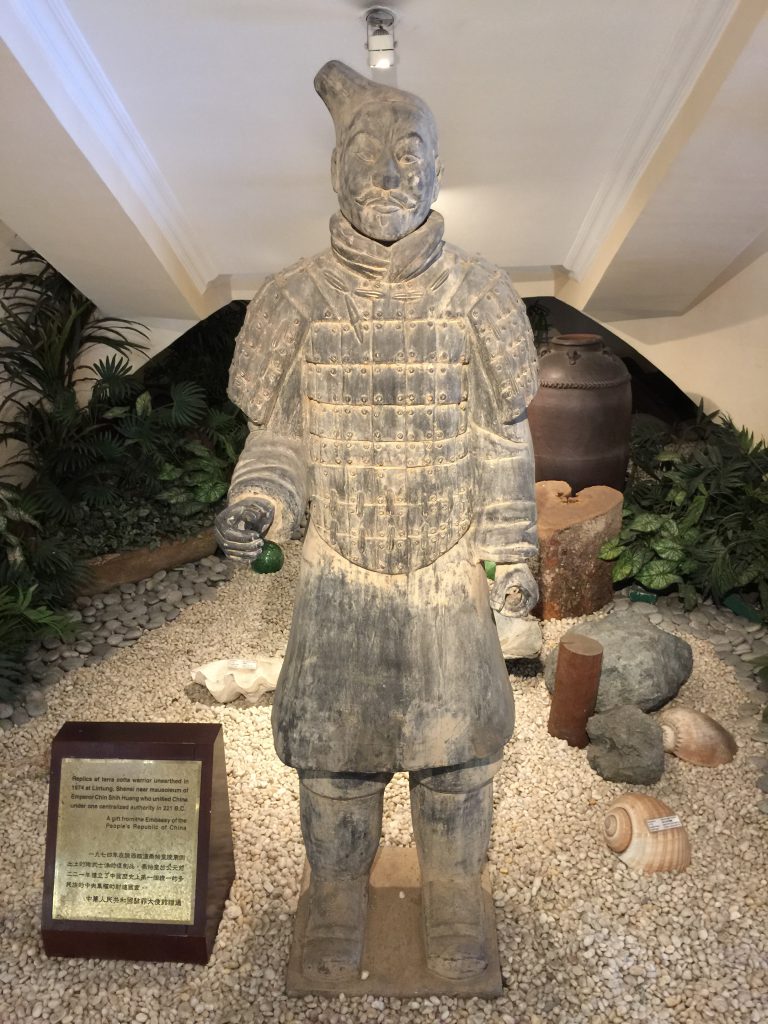
As you enter the center, a replica of a terracotta warrior standing tall will welcome you into its humble home featuring a large ship introducing a brief history of the early contacts between the Chinese and the Filipinos before Magellan’s arrival. As you make your way into the room, you’ll be greeted by realistic wax figurines depicting traders going on about their business who are probably insisting that you should buy from them!
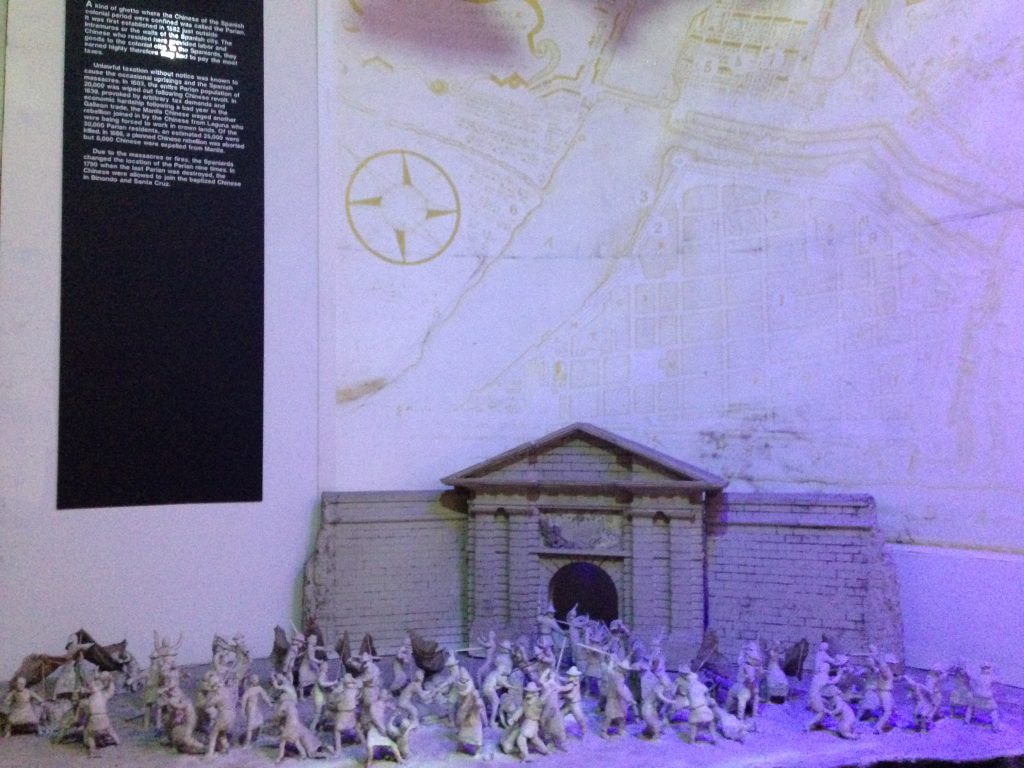
Ethnic Chinese sailed to the Philippine islands and interacted through trade in the precolonial era; however, the social dynamics changed when the Spanish ruled the islands. They kept close ties with the Chinese for business, but they were designated in separate areas called pariáns where they lived. The Chinese were also part of Spanish persecution with massacres and uprisings that took place.
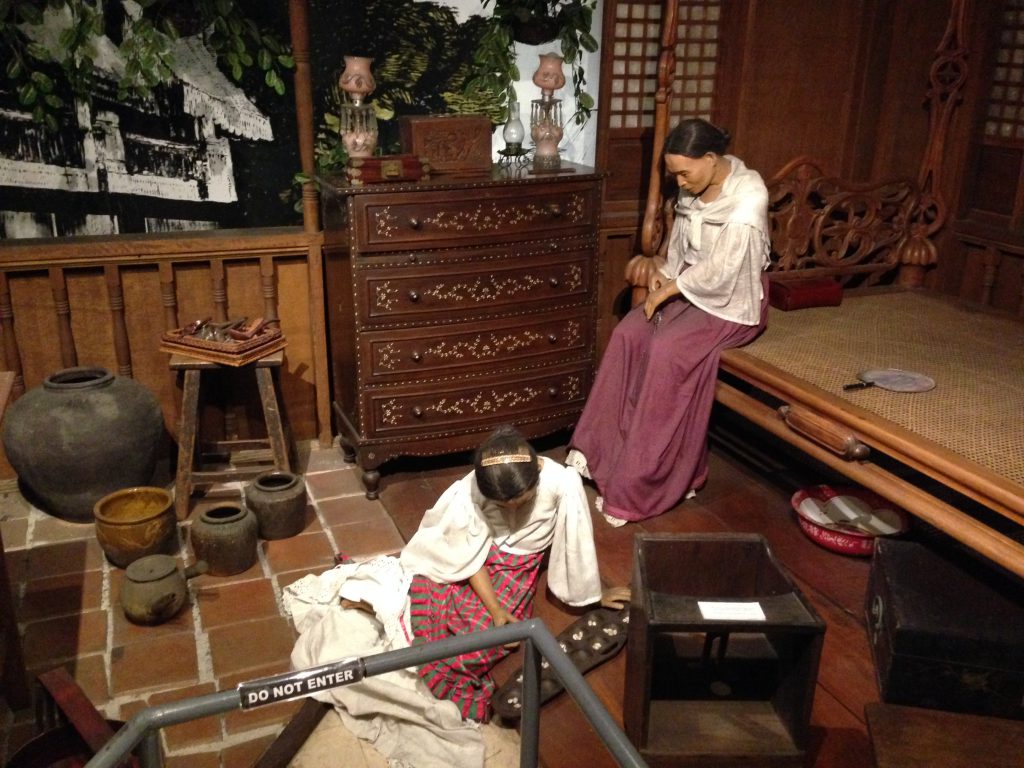
You can also locate a mini-replica of the life of Tsinoys in the 1800s. There are different kinds of furnitures such as chairs and beds that were highly influenced by the Chinese mestizos. There are also copies of marriage certificates contracted between Chinese husbands and Filipina or Chinese mestiza wives during the 18th and 19th century and their children’s baptismal records.
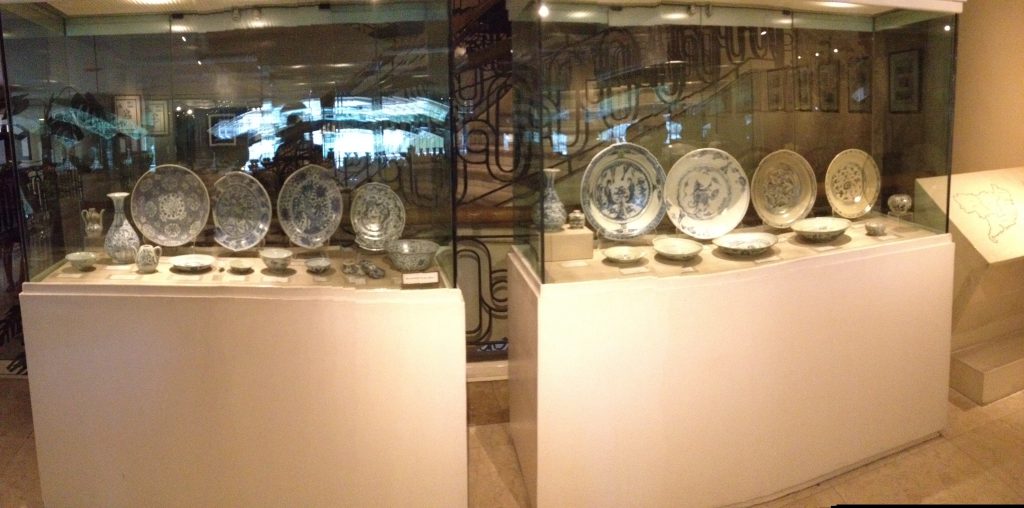
The Ching Ban Lee porcelain gallery is a section of the museum that specifically holds Chinese ceramics dating from 10th to 17th century that were unearthed in the Philippines.
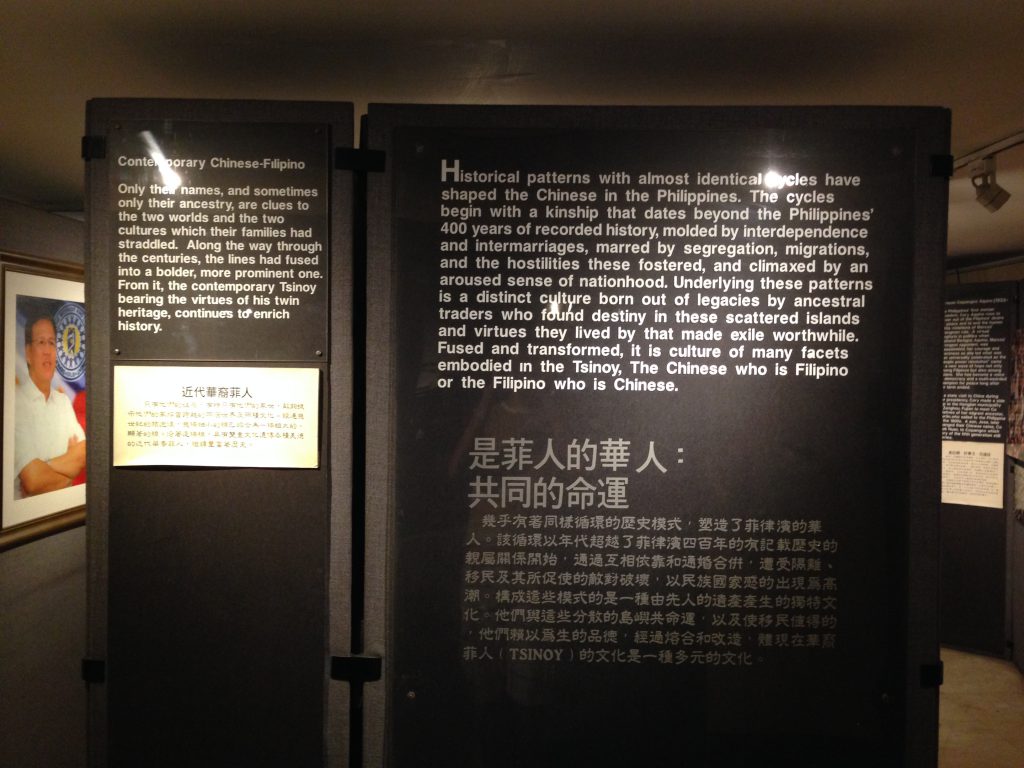
Beside gallery is the Martyr’s hall dedicated for heroes who have Chinese ancestry and have made a significant impact in Philippine history like former president of the Philippines Corazon Aquino. Photos and biographies of each hero are displayed in memory of them.
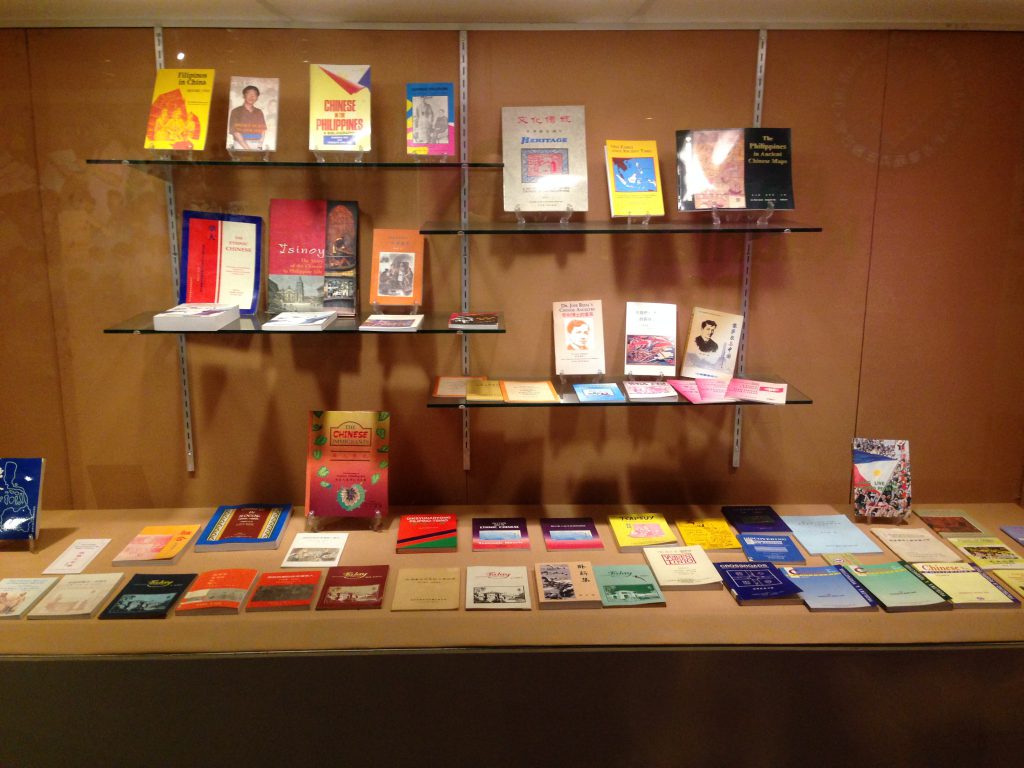
There’s still the last part of the hall to explore. This part features rare documentary materials of the Chinese in Philippine history. There are also an exhibit of magazines, books, and even TV shows which promote the Chinese culture. Finally, the museum doesn’t forget to pay tribute to the influential Tsinoys, like firemen and philanthropists, who surely left a mark in the Filipino-Chinese community. To cap off the tour, the top floor of the museum features a dark section of the hall where one can sit down and watch a hologram of a Tsinoy talking about how the early Chinese integrated themselves to the Philippine society.
If you still have enough time to spare, make the most out of it by exploring the whole Kaisa-Angelo King Heritage Center. Don’t forget to drop by the Chinben See Memorial Library. It houses books and magazine from varying genres, newspapers, and even photocopies of articles and other documents. It’s definitely a place that no bookworm should miss. Free copies of Tulay, their fortnightly, are also available at the ground floor of Bahay Tsinoy as a souvenir for your trip!
By the end of the tour, you can exit the museum with a deeper knowledge and appreciation of the place of the Chinese in the Philippines. The Chinese and the Filipinos have both influenced each other and are living harmoniously for centuries and more to come.
Everyone is welcome here in Bahay Tsinoy since there is no other museum dedicated to the history and influence of the ethnic Chinese in our Filipino society. There is also a lot of room for cultural understanding when exposing yourself to the vast collections the place has in store for you. What are you still waiting for? Visit Bahay Tsinoy as soon as possible!
Kaisa Angelo-King Heritage Center
32 Anda St. cor. Cabildo St., Intramuros, 1002 Manila, Philippines
Museum hours: Tuesdays to Sundays from 1:00 pm to 5:00 pm.
Entrance fee: P100 for adults and P60 for students as long as you bring an I.D.
Contact: (+632) 527.6083 or (+63) 922 890 1357
Written by Michelle Tiu.
Photos by Joshua Cheng.

